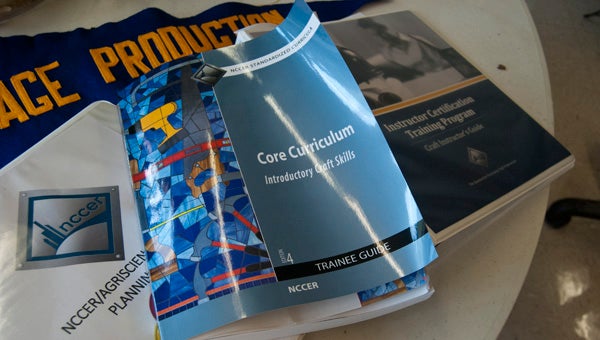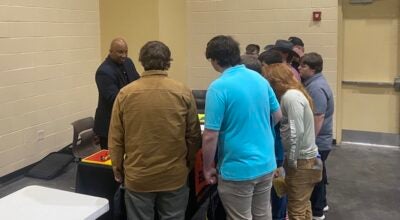Schools to implement new agriscience training program
Published 5:41 pm Tuesday, July 1, 2014

Agriscience instructors at local schools will start using National Center for Construction Education and Research (NCCER) textbooks and teaching materials (pictured) this year to train and certify students for college and the workforce.
Starting this school year, agriscience instructors at high schools in Chilton County hope to help their students become more college and career ready with a new training program.
Students in agriscience classes at Chilton County High, Maplesville High, Isabella High, Jemison High and Thorsby High schools will be able to complete training and become credentialed in various areas of study through the National Center for Construction Education and Research (NCCER).
“They have safety guidelines that we will be teaching, so when [students] graduate, they will be certified,” said Landon Lowery, Isabella agriscience teacher and Chilton County’s FFA chairman. “It’s going to make them more career ready because we have an industry-provided credential they can accept.”
Lowery said NCCER is geared toward ninth or 10th grade students enrolled in agriscience courses, including plant science, animal science, soil science, welding and construction.
Lowery said NCCER would allow him and other agriscience teachers to cover a broader range of topics at once and prepare students for advanced classes at LeCroy Career Technical Center.
“This way, kids are going to get a broad perspective of the agricultural industry and allow [teachers] to have some freedoms,” Lowery said. “It’s going to grow as we grow with it. There’s room for hundreds of other things to fit in there.”
CCHS agriscience teacher Marlon Harton said NCCER would also provide a countywide safety curriculum that is recognized by industry.
For example, if a student transfers from one school to another in the county, they would retain the same level of safety certification.
“Hopefully, we’ll have a multi-skill set workforce,” Harton said.
Lowery said the Chilton County Board of Education would cover the cost of teachers’ training, and the state department of education would reimburse the board for training materials.
He said the state department would also cover the cost of NCCER textbooks and teaching materials for each agriscience unit (about $1,800 per unit).
Students must be enrolled in an agriscience course to take advantage of NCCER, but they do not have to be FFA members.
According to Lowery, a pilot program for NCCER was conducted at 30 schools in Alabama last year, and multiple school systems offered positive feedback on the program.
NCCER ties into Alabama Superintendent of Education Dr. Tommy Bice’s Plan 2020, which is designed to ensure all students are ready to enter college or the workforce when they graduate.
“We’re really optimistic,” Lowery said of NCCER. “We’re moving toward a general agriscience program with this bringing all programs together.”
According to its website, NCCER is a non-profit education foundation created in 1996 with the support of more than 125 construction CEOs and various association and academic leaders who united to revolutionize training for the construction industry.
NCCER develops standardized construction and maintenance curricula and assessments with portable credentials, which are tracked through NCCER’s National Registry allowing organizations and companies to track the qualifications of their craft professionals and check the qualifications of possible new hires.
For more information about NCCER, go to NCCER.org.
To learn more about 2014 general agriscience courses offered at local schools, visit AlabamaFFA.org and click on the “Teachers” tab.






